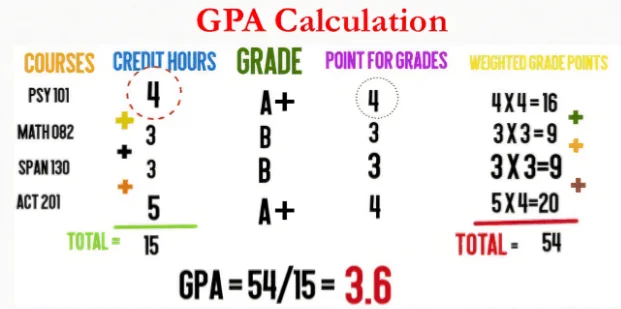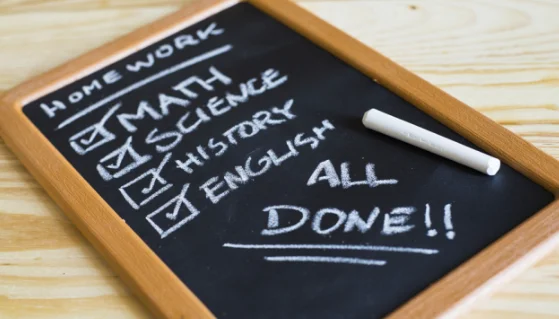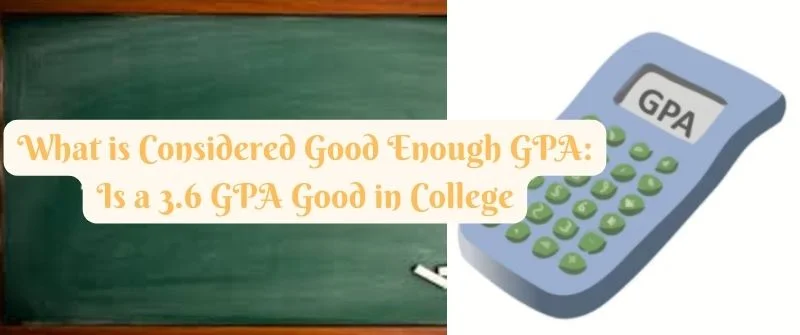A College degree is a must for success in today’s competitive world. But to get a great degree, you need to know whether your higher education will be sufficient to get you a good job.
That’s why many students are asking and wondering whether their 3.6 GPA was good enough in college.
Is a 3.6 GPA Good in College?
Many students have a difficult time getting their GPA up to 3.6. But, if you can do it, you’ll be in good shape to get into the schools you want and need.

The first thing you need to know is that there are many different types of GPAs, including the ones that colleges look at. The most common types are the weighted and unweighted GPA.
The weighted GPA considers all your grades, while the unweighted GPA only considers your grades in specific courses.
A weighted GPA will give you a better chance of getting accepted into certain schools than an unweighted GPA, but it won’t guarantee it for everyone who applies for admission.
For example, suppose you have a 3.5 weighted GPA and apply to medical school but don’t have any science classes on your transcript or other science classes. In that case, your application may still be considered for an interview or even a decision letter depending on how high up on their list of applicants they are.
What is a 3.6 GPA Good in Percentage?
A 3.6 GPA is usually the minimum required to get into a good university. If your student requires a 3.5 or higher, they should look at the universities they are applying to, and if they have any requirements that are more stringent than your school’s GPA requirement, then you should look for a school with lower requirements.

Many colleges and universities require that you have at least a 3.0 average to be considered for admission.
Even if you only have a 2.9, you may still be able to get into some schools if other factors make up for the difference (like being on the dean’s list).
How to Improve your GPA
If your student has an exceptional GPA, then there are several ways to improve it:
1. Study more Efficiently
The most important thing you can do to improve your GPA is to study more efficiently and consistently. Try not to rush through homework assignments or leave them until the last minute because this will only lead to poor performance on tests and high scores on quizzes and exams, which will be taken multiple times.
For example, if your homework starts at 8:00 pm, don’t start working on it until after 8:00 pm — this way, you won’t have any distractions during class lectures and can answer questions quickly when quizzes roll around.
2. Take the Right Amount of Classes
You should never take more than one course at a time. This means that if you have one class with a big test, don’t take another class until the test is over.
It’s not just about building up your knowledge; it’s also about getting used to studying for tests.
Taking as many courses as possible is important because they help you improve your grades in other subjects and make it easier for professors to recognize your abilities. You should try to take at least two classes every semester if possible.
3. Get Your Work Done Early
If possible, try to get your work done before class starts so that you don’t have to waste time during class trying to figure out what you need to do next.

Make sure that all of your assignments are turned in on time. If anything gets missed, turn it in as soon as possible, so there aren’t any problems later on down the road.
4. Don’t Skip any Classes
If something important comes up and it makes sense for you not to show up for a class — like if someone is going through chemotherapy or something similar — then, by all means, skip it! But if there’s nothing wrong with skipping a class.
How GPA is calculated in College
GPA is calculated based on the numerical average of all the grades earned throughout a semester or year. The GPA score can be used to determine the student’s academic standing.
It is also used for admission to some universities and educational institutions and recruiters in the job market.
More importantly, The GPA is calculated based on your cumulative grade point average (CGPA) for the course(s) you take. The GPA is a way to show how well you’ve performed in college courses and how well you’ve done compared to others who are also taking the same courses.
Your GPA will be affected by the number of credits you have completed and the quality of those credits. For example, if you only have one D- in your class, that could lower your overall GPA by 0.5 points. However, if you have a C+ average overall and still have a B- in your class, this would raise it by 0.5 points.
The GPA is calculated by adding all the grades obtained and dividing them by credit hours. For example, if you have a 3.5-grade point average, you have earned 1.0 credits (3/4) in each course, and your total grade point average is 3.5/4 = 1.92855565556555655 (rounded off).
Table Showing the GPA Scale and Percentages from 0.0 to 4.0
There are four main categories of grades students receive in a course: A, B, C, and D. Each grade is associated with a letter grade point average (GPA) value. The GPA scale ranges from 0 to 4.0, with a 4.0 representing the highest possible grade and a 0 representing an F.
The GPA scale determines how many credit hours are required for graduation based on the total number of credits earned during the term or semester. It also determines how many points are assigned to each course taken to achieve a certain GPA level.
| GPA | Percentage | Grade |
| 4.0 | 85-100 | A |
| 3.7 | 80-84 | A- |
| 3.3 | 75-79 | B+ |
| 3.0 | 70-74 | B |
| 2.7 | 65-69 | B- |
| 2.3 | 60-64 | C+ |
| 2.0 | 55-59 | C |
| 1.7 | 50-54 | C- |
| 1.3 | 45-49 | D+ |
| 1.0 | 40-44 | D |
| 0 | 0-39 | F |

